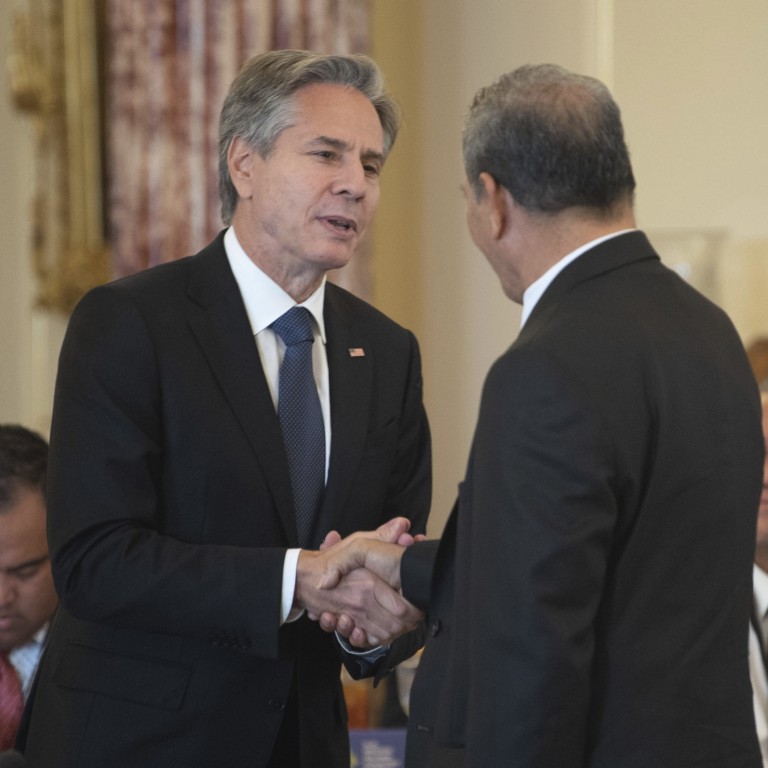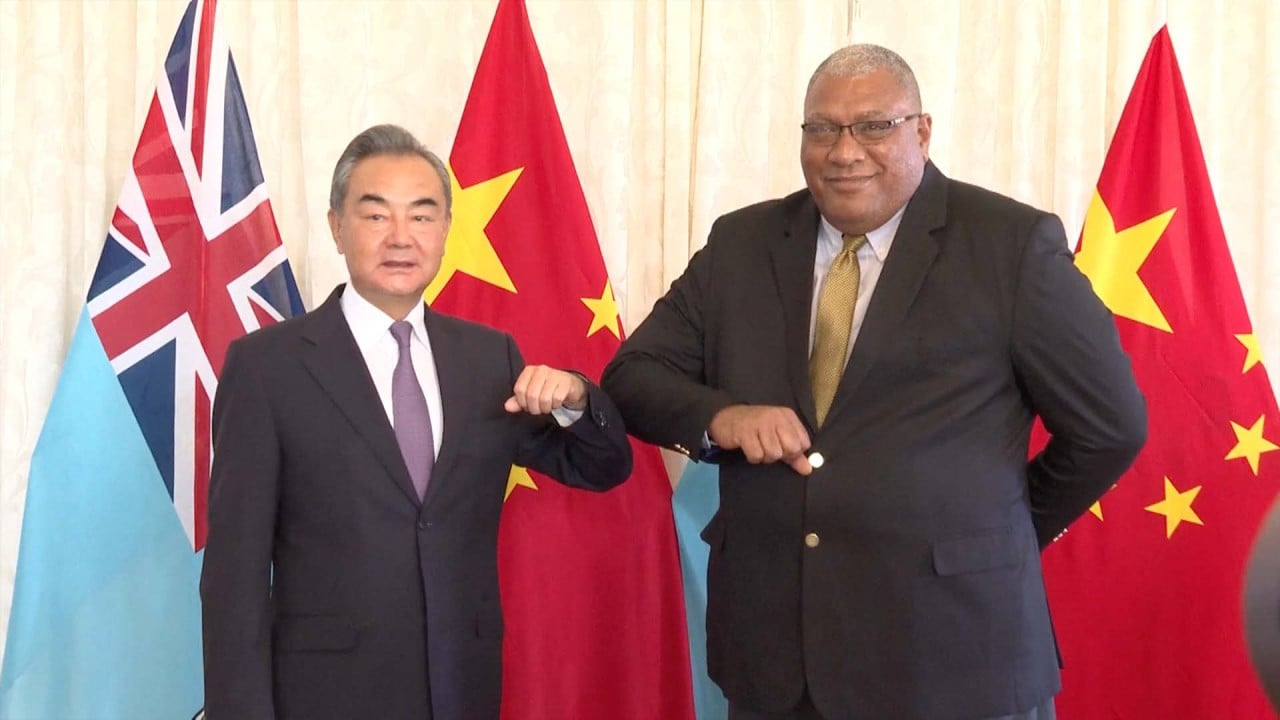
China facing increased competition from US in Pacific as Washington hosts first island summit
- This week’s event in Washington is expected to conclude with a partnership declaration that will open the way to US$860 million investment in the region
- Beijing’s growing presence in the Pacific, including a Solomon Islands security pact, has alarmed Washington and its allies
The two-day summit with 14 Pacific island governments in Washington began on Wednesday, the first event of its kind, and is expected to conclude with a joint partnership declaration covering areas such as trade, security, and climate change.
Total investment under the partnership is expected to reach over US$860 million, according to The Washington Post.
Despite earlier claims that the Solomon Islands would not sign the declaration – Australia’s ABC News has previously reported that it had sent a note to other Pacific nations saying there was no consensus – Secretary of State Anthony Blinken suggested on Wednesday that all attendees were on board, saying the US and Pacific nations have “come together around a declaration of partnership”.
Shi Yinhong, an international relations professor at Renmin University in China, said China would see the “threat” from increased US influence in the region as being on a “larger scale”.
“China will think even more that it faces a full-scale contest and competition from the US and its allies,” he said.
US vows ‘big dollar’ help for Pacific islands as it seeks to counter China
He added the summit is in line with the US Indo-Pacific strategy, which seeks to maintain its dominant position in the face of China’s rapid rise, and there was no clear sign of opposition to the partnership proposal.
“China’s actions in the Pacific have sparked a counter-reaction from traditional partners, and larger powers that had previously been less engaged in the Pacific for some time,” said Mihai Sora, a Pacific Islands specialist at Australia’s Lowy Institute.
The agreement has triggered major concerns from US and its allies including Australia and New Zealand that it will pave the way for China to set up a military base on the island, a claim denied by both Beijing and Honiara.
Other Pacific islands rejected the offer of a similar security pact made during Chinese Foreign Minister Wang Yi’s tour of the region in May.
A leaked draft proposal said China aimed to “expand law enforcement cooperation”, including more joint police training exercises.
The proposal failed to win broader support and China later released a position paper that only mentioned traditional areas of cooperation, such as trade and public health, without mentioning any concrete security measures.
But some observers said the Pacific islands were worried US pledges would not amount to much in the end.
Quad bloc commits to Indo-Pacific disaster response plan on UN sidelines
The Marshall Islands, another participant in the summit, recently halted negotiations with the US on renewing their Compact of Free Association pact due to grievances over the lasting impact of US nuclear tests in the 1940s and 50s.
Wang Huiyao, founder of the Centre for China and Globalisation, a Beijing-based think tank, said: “US President Biden has just said at the United Nations General Assembly that he will not ask other countries to pick a side [between US and others].
“He should put this into practice. If not asking these countries to pick a side, then what is its purpose for having these meetings? It’s worth questioning.”
He added the summit should focus on bringing real economic benefits to the islands rather than gathering them for “some kind of geopolitical competition”.
The other participants in the summit include the Cook Islands, Fiji, Micronesia, Nauru, Palau, Papua New Guinea, Samoa, Tonga, Tuvalu and Vanuatu. Government leaders from two French overseas territories, French Polynesia and New Caledonia, are also attending along with representatives from Australia and New Zealand.

 - Kawala Xie.jpg?itok=NogZcyZ-&v=1661304068)
